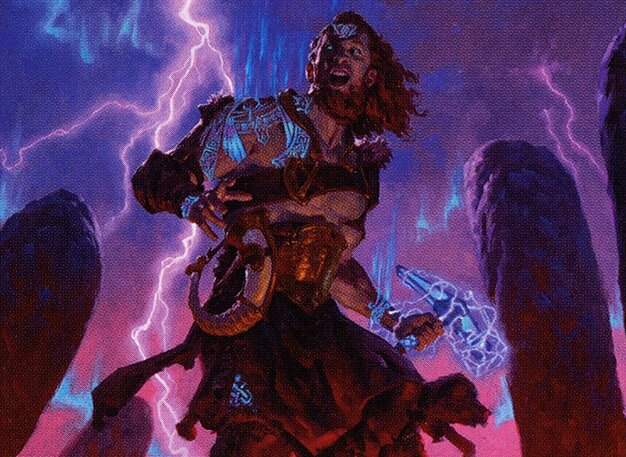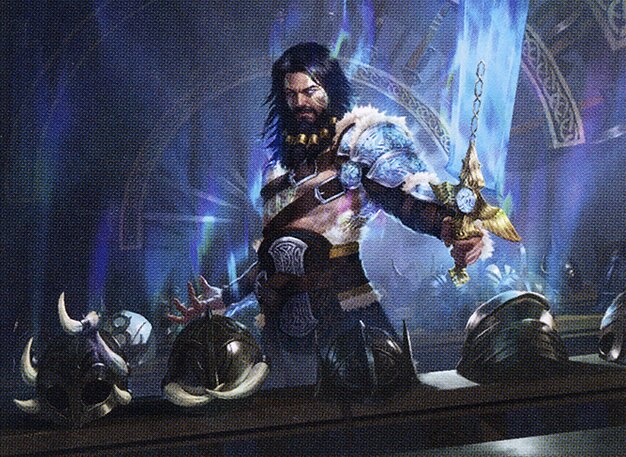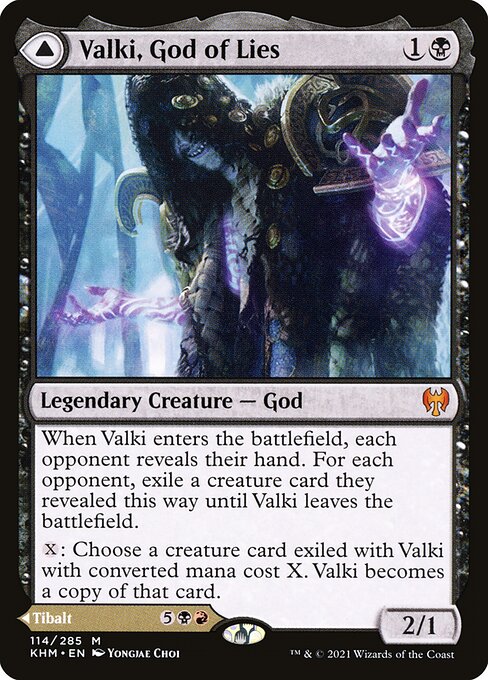Deck & Commander Strategies

Toralf, God of Fury
Toralf's player aimed to capitalize on the opponents' wide board state and use direct damage spells to trigger Toralf's ability, intending to use a massive Magma Quake to finish off opponents.

Valki, God of Lies
Valki's player looked to manipulate the opponents' hand information for strategic advantage, using quirky cards to keep opponents off balance.

Halvar, God of Battle
Halvar's player focused on equipment synergies, aiming to cheat equipment into play for free, reduce equip costs, and move them around in combat to dominate the battlefield.

Reidane, God of the Worthy
Reidane's player aimed to establish a taxing board state, using hate bear cards to make opponents' stuff cost more to play and enter the battlefield tapped, and then go wide to deal damage.
Gameplay Insights
- 1
The early game hand reveal by Valki's player gave them a significant strategic advantage.
- 2
Reidane's player attempt to establish a taxing board state created significant disruption and forced the others to adapt their strategies.
- 3
Halvar's player's focus on equipment synergies allowed them to maintain a strong board presence throughout the game.
- 4
The game-changing Magma Quake by Toralf's player, exploiting the opponents' wide board state to deal massive damage, was a pivotal moment in the game.
Notable Cards
-

Valki, God of Lies // Tibalt, Cosmic Impostor
-

Toralf, God of Fury // Toralf's Hammer
-

Halvar, God of Battle // Sword of the Realms
-

Reidane, God of the Worthy // Valkmira, Protector's Shield
Gameplay Summary
The game started with the players revealing their chosen commanders: Toralf, God of Fury; Valki, God of Lies; Halvar, God of Battle; and Reidane, God of the Worthy.
The game's early phase was characterized by each player setting up their respective board states, with Valki's player gaining an early advantage by forcing the others to reveal their hands.
As the game progressed, the players focused on expanding their board presence, with Toralf's player hoping for a wide strategy from the others to maximize his commander's potential.
Reidane's player aimed to establish a taxing board state, while Halvar's player was keen on utilizing equipment synergies.
The game featured multiple shifts in tempo, with several impactful spells and abilities shaping the flow of the gameplay.
The final outcome was dictated by a dramatic turn involving a Magma Quake, which ended up being the decisive play, and resulting in a victory for the player who managed to execute their deck's strategy most effectively.













![Varina vs Rafiq vs Lathril vs Valki [EDH/Commander, Magic The Gathering Gameplay] 2021 thumbnail](https://i.ytimg.com/vi/lecwGN70PSY/sddefault.jpg)
![Edgar Markov vs Valki vs Animar vs Gavi [EDH/Commander, Magic The Gathering Gameplay 2021] thumbnail](https://i.ytimg.com/vi/ELgrDNY5CUI/sddefault.jpg)


















